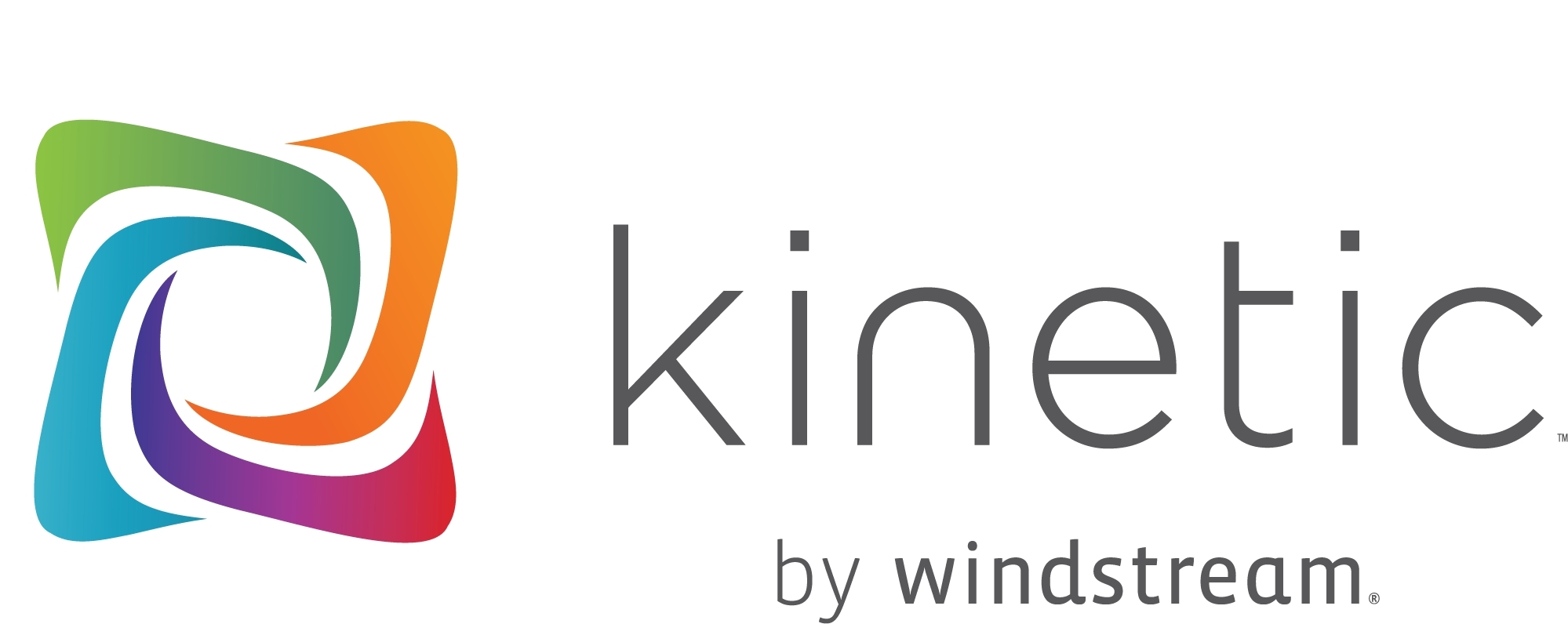Best Internet Service Providers of January 2025


Deane Biermeier
Contributor
After over 3 decades working in residential construction, contracting, remodeling, maintenance and home repair, Deane began writing to broaden his reach. Throughout his career, his passion has been helping clients find the potential hidden in the walls of every home and providing them the information and tools to take control of their repair and remodeling pursuits. His goal was, and is, to assist his clients—now his readers—in finding ways to make their ambitions reality. To meet that desire, Deane now provides written content about all things relating to the home, sustainability and personal finances.


Christina Levandowski
Contributor
Christina is a freelance editor and contributor with Newsweek’s small business team. With a passion for small business optimization and strategy, Christina has successfully launched her own business and now works to help others do the same. She has studied extensively at Arizona State University on the pre-medical track, and is now an entrepreneur, author, strategist and editor. She is based out of Los Angeles, CA.
Updated December 27, 2024 at 3:02 am
If you’re here, you’re likely looking for the best internet providers that combine connection speed choices with exceptional plan, perk and price point options. However, with so many internet companies available and competing for your business, choosing the best providers for internet for your home and business needs can be challenging.
While not all internet service providers (ISPs) or WiFi providers will best serve everyone’s needs, the eight on our list provide the best experience for the most significant number of users based on each one’s available plans, options and connection types. We’ve also included detailed information to help you choose the best internet company for you and your situation.
Our 8 Best Internet Service Providers
Best Wireless Internet Provider
T-Mobile Home Internet

Best Internet Plan Options
Xfinity by Comcast

Most Affordable Internet Provider
Verizon Home Internet

Best Fiber Internet Provider
Google Fiber

Best Satellite Connection Internet
Hughesnet

Best Rural DSL
Kinetic by Windstream
How To Choose an Internet Service Provider
Sorting through every detail of every internet provider in your area to choose the best one can be daunting. However, focusing on a few crucial factors can help narrow the list quickly. Our experts recommend that you determine the best internet provider for you based on the following criteria.
Factors To Consider When Choosing an Internet Provider
Location Availability
The most crucial factor when choosing your internet provider is whether or not your chosen company provides service in your location. Keep in mind that while some companies may offer internet services in your general area, some connection types may not be available in your neighborhood.
We also want to note that many companies are still developing fiber networks, and the service is still unavailable in numerous locations. It’s generally best to check with your potential provider to see if your connection choice is an option where you live or work.
Plan Options
Plan options, including available speeds, connection types, bundling deals and contract requirements are the next most essential considerations when choosing an internet provider. Internet companies sometimes offer lower monthly pricing in return for signing a contract. Additionally, most providers offer bundling deals with discounted pricing when you combine your internet service with other services, such as phone, television, streaming or smart home integration.
Price Details
Typically, the faster the internet connection, the more it will cost. Balancing your internet connection speed against its price is essential.
Remember to consider every cost involved in order to have the most cost-effective experience. We recommend checking for installation or set-up charges, price increases after any introductory periods, equipment rental costs, cancellation charges if applicable and any additional fees when deciding which provider is best for you.
Connection Speed
Depending on how you use the internet, connection speed may be more or less important to you than others. Serious online gamers, online meeting hosts and those who consistently download or upload large files often require the fastest connection speed available to them. Casual internet users, on the other hand, are less likely to pay the increased costs of the fastest speeds.
Speeds of over 100 Mbps are typically necessary for people who require a high-speed connection.
Compare Vault’s Best Internet Providers of 2024
Best Internet Provider Overall

AT&T
Why We Chose It
AT&T is a well-known communications company, providing multiple mid to high-speed internet connections in 22 Southeastern and Southwestern states, as well as the Great Lakes. The company offers many plan choices with bundling options to save money, without the typical stack of equipment fees, data caps and contracts.
Pros & Cons
- Service covers early termination fees
- 99% proven reliability
- Users consistently report positive customer service interactions
- Only available in 22 states at the time of this publication
- Professional installation costs $99
- 5 gigabit per second (Gbps) plan is costly
Best Wireless Internet Provider

T-Mobile Home Internet
Why We Chose It
T-Mobile Home Internet can be an excellent provider option for casual internet users and gamers. The company provides fixed wireless 5G connections with speeds of up to 1 Gbps in some areas and offers value pricing with a price-lock guarantee and no equipment costs.
Pros & Cons
- Widely available nationwide
- Users consistently report positive customer service experiences
- No equipment or setup fees
- Lower pricing requires autopay
- Connection speed subject to volume restrictions
- High-speed options unavailable
Best Internet Plan Options

Xfinity by Comcast
Why We Chose It
As the largest cable service provider in the U.S., Xfinity by Comcast provides internet connections with many plan options across 41 states nationwide. The company offers low introductory pricing and bundling deals combining internet billing with television, streaming, mobile, landline and smart home features.
Pros & Cons
- 99.9% network reliability
- Exclusive 10G network and WiFi 6E gateway
- 30-day money-back guarantee
- Contracts apply for some plans
- Users report substantial price increases are possible after 12 or 24 months
- 1.2 terabyte (TB) data caps apply
Most Affordable Internet Provider

Verizon Home Internet
Why We Chose It
Verizon offers a competitive, cost-effective solution for people looking for bundling and pricing value across a wide variety of plan options. The company provides several connection choices, from fixed wireless to fiber optics for the internet, and customers can bundle with Verizon’s cell, TV, and landline services—and they offer an extensive suite of perks simply for making the switch.
Pros & Cons
- Up to $500 credit to switch from competitors
- Unlimited data and no equipment fees
- Speeds up to 1 Gbps
- Fiber connections limited to select states
- Users report mixed customer service experiences
- $99 setup fee applies to some plans
Best Fiber Internet Provider

Google Fiber
Why We Chose It
While Google Fiber internet connections are only currently available in 15 states, the network is growing, with three more metro areas slated to be up and running soon. Google Fiber offers the fastest downloading and uploading speeds available across a wide area with reasonably priced plan options.
Pros & Cons
- 24/7 customer support reachable in 10 seconds or less
- Up to 8 Gbps of speed
- Low-cost plans available for qualifying customers
- Limited availability
- Fastest plans only available in limited locations
- Pricing can deter some users
Best Satellite Connection Internet

Hughesnet
Why We Chose It
While you will need to sign a two-year contract without a trial period when signing up for a Hughesnet satellite internet connection, it’s the best of just a few provider options that go where cable, DSL or other internet services won’t reach. The benefits extend beyond individual homes, as business customers receive extra perks with Hughesnet—such as network priority for the fastest possible speed at busy times.
Pros & Cons
- Unlimited data across plan types
- Wall-to-wall coverage via WiFi 6 and mesh WiFi nodes
- Speeds up to 100 megabits per second (Mbps) even in rural areas
- Installation and additional equipment fees apply
- Satellite download speeds limited to 100 Mbps, which may not be enough for some
- 2-year contract, no trial period
Best for Bundling

Cox
Why We Chose It
Cox provides internet services with various connection speed options and 17+ bundling packages to combine internet pricing with television, streaming, landline, cell phone or smart home integration. Most plans provide free equipment rental, and a few low-cost options exist—making it one of the most diverse and versatile options on our list.
Pros & Cons
- Extensive library of bundling options for every need
- Wide range of speeds
- Rare free trial perk equates to a free month of internet
- 1.2 terabyte (TB) data cap applies
- Cost may deter some users
- Some bundled plans require a contract
Best Rural DSL

Kinetic by Windstream
Why We Chose It
Kinetic by Windstream offers internet services in 18+ states to date, primarily focusing service areas across the rural United States. The company provides DSL, cable and fiber connection plans with discounts and bundling options available, making it a competitive choice if you have few connectivity options around you.
Pros & Cons
- 99.9% network reliability
- No data caps or contracts
- Other discounts available upon request
- Pricing varies by location and availability
- Equipment fees apply
- Limited availability for fastest speeds offered
Internet Connection Types
Several internet connection types exist, and some are more widely available than others. Most of the best internet providers offer multiple connection types, often depending on location—and speed generally varies depending on the type of internet connection you’re working with.
Here’s a quick summary of the available internet types at the time of this publication. If you live in a rural location or are currently experiencing a period of need, we recommend contacting providers on an individual basis to assess your options, which may extend past this list.
Dial-Up
Dial-up internet services were the most popular type of connection at the dawn of the internet. The connection uses traditional telephone lines to connect to the ISP.
Dial-up connections still exist in some locations. However, the technology is generally no longer available and too slow for practical use.
Satellite
Satellite internet connections are generally available where few other options exist. This type of connection uses orbiting satellites to communicate between the ISP and the customer.
Satellite connections can reach download speeds of around 100 Mbps. However, upload speeds are significantly slower.
Wireless
Not to be confused with in-home or in-office Wi-Fi, wireless internet connections operate through cell signals, including 4G LTE and 5G. The connections feature speeds that hover between 5 Mbps and 1 Gbps. However, internet and cell phone traffic in the area at a given time can negatively affect the connection speed.*
*The term fixed wireless or FWA also applies to these connection types.
DSL
DSL internet connections operate on a similar principle to dial-up connections and use the same telephone line setup. However, DSL connections are a more advanced technology and can reach speeds of around 100 Mbps.
Cable
A cable internet connection is a coaxial cable that delivers internet and television services. Cable connection speeds can reach 1 Gbps, and the service is widely available in metro areas, suburbs and many rural locations.
Cable connections typically provide the fastest and arguably most reliable internet service to date, excluding fiber-based options.
Fiber
Fiber optic or fiber internet connections are the fastest available on the market to date. Some providers offer speeds in excess of 8 Gbps, which are typically only available in limited locations. While the technology is advanced, networks are still mostly under construction. Currently, fiber internet connections are generally only available in major metropolitan areas.
Internet Providers vs. Wi-Fi Providers
Internet provider and Wi-Fi are terms that can cause confusion for some. While both terms relate to internet connections, they are quite different from each other. An internet provider or ISP, is a company that supplies a general internet connection to a specific location. The connection may be wired or wireless and can consist of components that include satellites, wireless signals, electrical cables or fiber optic lines.
WiFi providers, on the other hand, come into play after the internet connection reaches a location. WiFi connects the service delivered by the ISP to the devices in the home or workplace on which the user interacts with the internet.
Frequently Asked Questions
Who Has the Best Internet Service in the World?
Determining who has the best internet service in the world can be tricky. The general consensus is that the EU, UK and Tawian clock the fastest average internet speeds, per many expert sources.
Which Internet Connection Is Best?
Fiber optic internet connections are typically considered the best available. Fiber features very high downloading speeds and, in most cases, similarly high uploading speeds, called symmetrical speeds. Fiber internet also features low latency, meaning it reacts quickly to user input—making it excellent for online gaming.
Who Has the Best Internet System?
Our pick for the best overall internet system is AT&T. The company provides a full suite of features, including value pricing, several bundling options and high speeds with few limitations. However, while AT&T works well for many internet customers, the right connection for your needs, budget and location may vary. We recommend doing your research and consulting with your sales representatives to walk away with the best possible option for your needs.
Editorial Disclosure: We may receive a commission from affiliate partner links included on our site. However, this does not impact our staffs’ opinions or assessments.

Deane Biermeier
Contributor
After over 3 decades working in residential construction, contracting, remodeling, maintenance and home repair, Deane began writing to broaden his reach. Throughout his career, his passion has been helping clients find the potential hidden in the walls of every home and providing them the information and tools to take control of their repair and remodeling pursuits. His goal was, and is, to assist his clients—now his readers—in finding ways to make their ambitions reality. To meet that desire, Deane now provides written content about all things relating to the home, sustainability and personal finances.